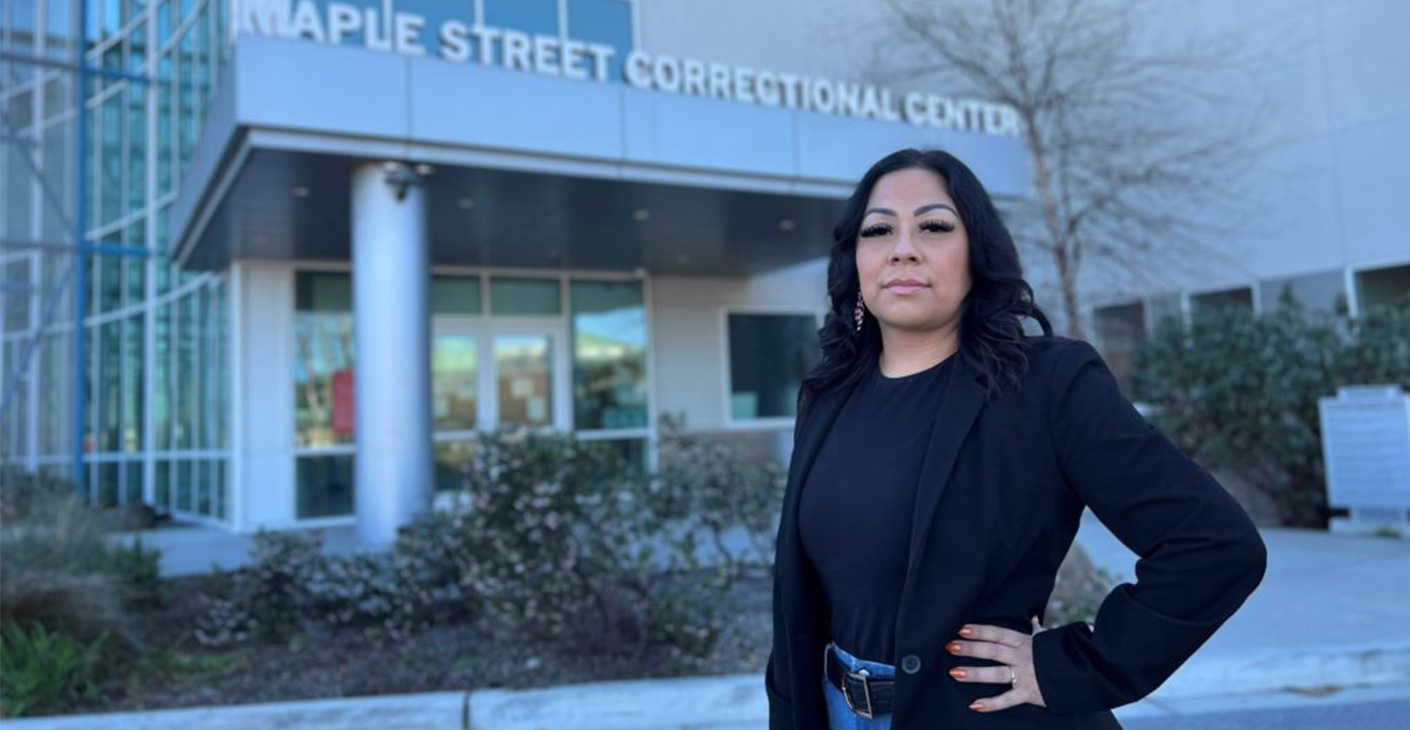Elizabeth Quiroz is the inaugural winner of SFF’s Phyllis K Friedman – Retha Smith Robinson Community Leadership Award. The award is named after the daughter of Daniel E. Koshland Sr., SFF’s co-founder, and Retha Robinson, longtime SFF staff member, and director of SFF’s Koshland Program. This $20,000 award recognizes an emerging woman-of-color leader under 40 in San Mateo County. Future awards will be given to women working in Alameda, Contra Costa, Marin, San Francisco, and San Mateo counties.
Elizabeth Quiroz is bursting with energy, positivity, and hope. The co-founder of Redemption House of the Bay Area, Quiroz has big ideas for tackling the complex and often hidden ways that human trafficking traps girls and women in the region. It’s a topic that she knows all too well.
Eleven years ago, she had hit rock bottom. Outside of the Wendy’s on the top of the hill in Daly City, she had been arrested for selling drugs. It wasn’t her first arrest, and it wasn’t the first time she’d been trafficked in the Bay Area, this time by a man who forced her to sell as much as half a pound of meth every week. But it was the first time that she’d be going to jail as a mom. Her son, then just three months old, waited at a nearby drug house.
Quiroz grew up in Daly City, San Francisco and the Central Valley. Her parents struggled with alcoholism and generational cycles of abuse. When she was 10, a neighbor sexually assaulted her. Afraid of many of the adults around her, Quiroz at age 15 fell into the hands of a 27-year-old human trafficker who professed his loyalty to her. “So I had a mindset that I had to show my loyalty, too,” she says.
Soon her trafficker had Quiroz selling plastic bundles of crack in different neighborhoods in San Francisco. Over the next 12 years, she was trafficked by three different people, forced to sell drugs and sex, and even commit armed robbery to help get one of her traffickers out of jail. Two of her traffickers convinced her that they cared about her and that they were the only people who could protect her. Each time she was arrested, she refused to reveal her traffickers’ names for fear that she’d be sent back to her abusive home or labeled a snitch once she was released.
But after her arrest at Wendy’s in 2011, something changed. While at the San Mateo County women’s jail in Redwood City, Quiroz had, for the first time, access to an intervention program that transformed her life. “Before I had to put on a mask and pretend that nothing scared me,” says Quiroz. “The program taught me to let that go, and to move past my fear.”
Quiroz decided to reveal the name of her trafficker to law enforcement. She earned her GED while in jail. And after serving 18 months of a five-year sentence in San Mateo and Sonoma County jails, she was released into a brand-new life. She deepened her faith in Christianity, earned a bachelor’s degree in sociology, wrote a book, and in 2018, then Governor Jerry Brown pardoned her, effectively cleaning her criminal record. It was only after her release when Quiroz learned for the first time that there was a term to describe the servitude that had trapped her for the last 12 years of her life: human trafficking.
To help other survivors of human trafficking get back to a functional, productive, and healthy lifestyle, Quiroz co-founded Redemption House of the Bay Area in 2018. The organization provides purses with toiletries, condoms, and flyers with information about their peer-led support group to women living on the street or working in hotels known for human trafficking. They hold online and in-person support group sessions and give talks to incarcerated women – who in some cases are safer in jail than they are on the outside. And they have plans to open up safehouses for women who need to escape their traffickers and start working towards their healing journey.
Now 38, she also has full-time custody of her son, and is married to a caring, supportive husband. “Your past doesn’t define who you are,” she tells other women who are being trafficked. “You can turn your pain into purpose. You have that power.”


